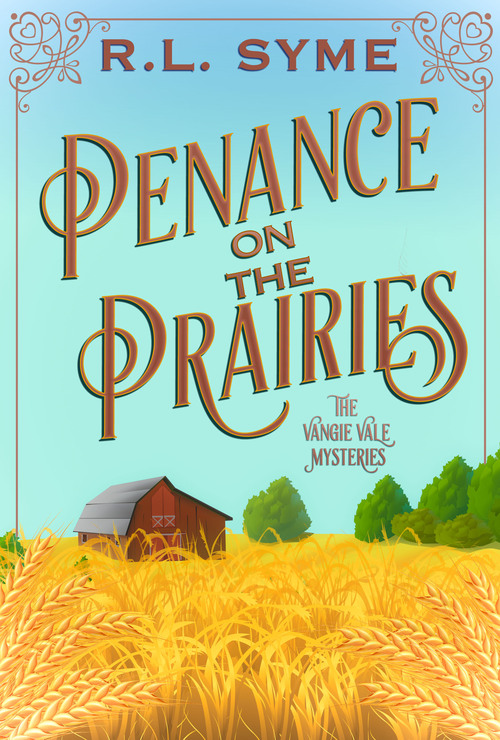If you’ve read the previous two posts on my Twelve Days of Christmas, you’ll know that I’m trying to celebrate each of the feasts of the Christmas season this year, one by one. Yesterday was the Feast of Christ. Today, the second day, is the Feast of Steven.
(Of course, as it would happen, there’s a Dr. Who episode called “The Feast of Steven” and I was so tempted to celebrate today by watching Dr. Who. But I did not. Note my extreme self-control.)
(Double note: I also had a book release today, so there’s been a lot of celebrating that baby being born. However, I’m only going to mention that just this once. It’s hit the Scottish and Medieval bestsellers list, thanks to my amazing social media and PR guru. You may buy it here if you’d like.) 🙂
Now, in many countries, today is Boxing Day, which was traditionally a day that honored people who work for you. So if you had a slate of employees, you would “give them a Christmas box” in gratitude for their service. Especially servants and the tradespeople who served your household. That’s the non-liturgical celebration.
The liturgical celebration is to honor St. Stephen, the first martyr. Now, martyrdom is a difficult concept to grasp for many modern Western people. We use the word “martyr” to mean someone who sacrifices their own desires to see something else happen. We call people martyrs who enjoy self-sacrifice.
But martyrdom is much more than being masochistic or manipulative, which is what most of what we call “martyr behavior” really is. Being a martyr wasn’t necessarily about self-denial. It was about conviction. And not the kind of conviction that gets you arguments on Facebook. The kind of conviction that gets you beheaded.
As part of my “celebration” of St. Steven’s Day, I’ve been watching some film portrayals of martyrs. There have been two of interest especially and both were in the television show, The Tudors.
First was the execution of Sir Thomas More. He was executed for disagreeing with King Henry VIII during the infamous Anne Boleyn debacle. Interestingly enough, one of my favorite actors played him, Jeremy Northam. I’m not totally sure that Sir Thomas More was that hot, but here’s hoping. Anyway, in the last days of his life, his daughter came to see him and begged him to recant. She said, “Just say the words, Father. We all have.” His entire household was required to swear an oath that the king was lawful, and they did, although they did not believe it (again, according to the show). But Jeremy Northam could not say the words. His soul would not allow it. And they cut off his head because he would not say the words.
The second was the execution of the Cardinal Fisher. He had been tortured, he had been beaten, and when he came to the moment of his beheading, he expressed some fear. Not that what he believed was wrong, but that he should have to die for it. He said to the people, “Now that the time has come, I find that I need your help.” And the people cried out, “God bless you,” meaning, “You are right.”
When we talk about martyrdom, we’re not talking about someone who works more hours than they should or who doesn’t spend time with their family or who does the work of other people or who goes without something. Those are self-destructive, but that does not a martyr make.
There is no better literary representation of a martyr than the play Murder in the Cathedral by T.S. Eliot. Late in this play, after the soldiers arrive, we see the scene where Thomas Beckett decides to become a martyr. But of course, the piece of interest is that the true moment of self-discovery for the martyr’s heart happens not in monologue, but in silence. Eliot writes of a martyr, like Fisher or like More, who only had to say the words in order to be spared. Their conviction was so deep, they were willing to allow another person to end their life rather than say the words. They may not always have gone with strength, but they knew their hearts would not allow them to lie, their conviction ran so much through their very soul.
Think about this today. Do you have any conviction that runs so deep in your soul that you would rather allow yourself to be killed than to deny it?
The celebration of the martyr is not necessarily (I do not believe) calling us to seek out ways to inflame people or to offend people or to argue with people. Martyrs–the truly persecuted–are not going out of their way to seek out conflict. Rather, when conflict comes to them, they are not moved by it. They would rather give their life. They will not speak the words that disagree with their conviction.
What I believe the celebration of the martyr is trying to teach us is to know our hearts. Know what we are willing to give our life for and what just isn’t worth it. And to know when you should just say the words and when you should not. A martyr does not believe all things with equal conviction, but they know which words not to speak.
So today, my celebration, as I said, was to watch some television about martyrs. It was quite fun. But additionally, I want to celebrate the capacity we have to be true to our innermost convictions. The ability to believe with such devotion is truly a gift and should be celebrated. It is quite often maligned to be unpopular, but it is really a gift. To know one’s soul so completely that there is no question what one is willing to say and what one is not… that is beautiful. I celebrate that capacity for self-capitulation. I truly pray that those who have that capacity will be rewarded for it. I do not know if it is in me, but I doubt it. I do not know if I have the courage for martyrdom.
Anyway, my recipe for the day is Shepherd’s pie. I had some leftover prime rib and some mashed potatoes from the Christmas feast. I made a little gravy and added some peas and carrots. It was fantastic.
Steven’s Day Pie, which is the traditional food of this second feast day, is like shepherd’s pie, made specifically with turkey and ham, which were the most common feast meats of the Christmas feast. I did not make Stephen’s Day Pie, but the Shepherd’s pie was quite fantastic.
My carol of the day is “Good King Wenceslas” which contains a reference to the Feast of Stephen. This is the version I like the best. How can you not love Bing?







